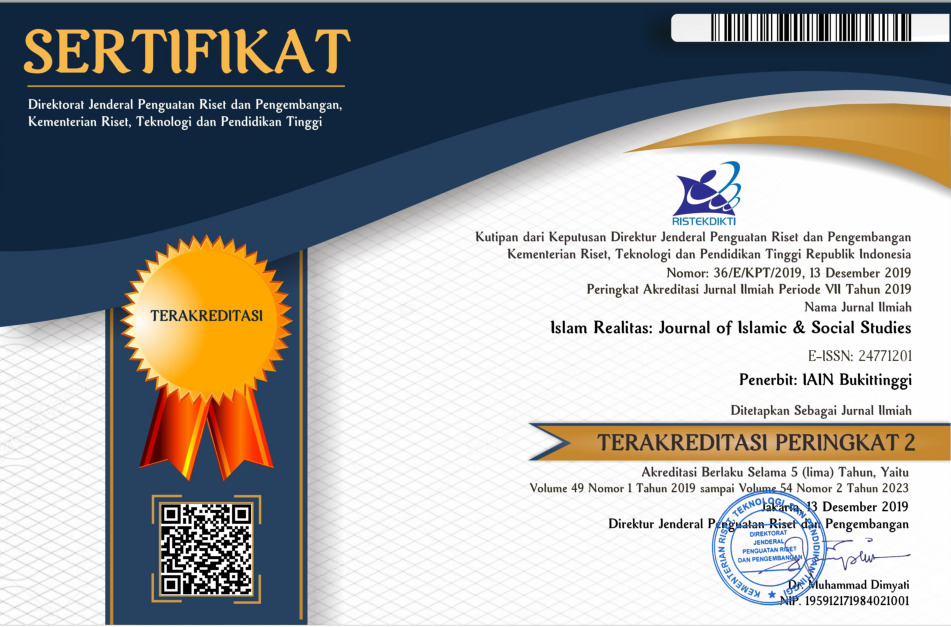Causes of School Dropouts among Congolese Muslim Refugees in Katwe, Kampala, Uganda
Downloads
Schools dropout is being a noticeable problem in Eastern Africa.  The school dropout fundamentally affected the future of children because it usually leads them to early marriage, drug use, hard work labor, and prostitution as the school dropout is being a serious issue in mostly Eastern Africa. This study is aimed at investigating factors contributing to the school dropout among Congolese Muslim refugee in Katwe, a village in Kampala.  Both qualitative and quantitative approach was used in this study in order to find out how language barriers and early marriages causes dropouts among Congolese Muslim refugees in Katwe; to examine how hidden costs at school causes dropouts among Congolese Muslim refugees in Katwe; and to determine the relationship between the causes of school dropout and the actual school dropout. The results of the current research show that 30% of respondents agree that language barriers are one of the most prevalent factors causes of school dropout in Katwe. The instable school fees and earlier marriage also were found as the contributed cause of school dropout. Alternative hypothesis that stated “there is a relationship between causes of school dropout and actual dropout among Congolese Muslim refugees in Katwe, Kampala, Uganda was adopted.
Saat ini, putus sekolah merupakan salah satu permasalahan pelajar di wilayah Afrika Timur. Umumnya, pelajar yang putus sekolah adalah mereka yang miskin dan/atau yatim piatu serta tidak memiliki wali. Putus sekolah secara fundamental mempengaruhi masa depan anak karena situasi ini cenderung mendorong anak ke pernikahan dini, penggunaan obat-obatan terlarang, pekerjaan kasar, dan prostitusi. Berangkat dari fakta bahwa banyak pengungsi perkotaan Kongo yang putus sekolah, kami menyelidiki penyebab kondisi itu. Khususnya di Katwe, sebuah desa di Kampala, hambatan bahasa dan absennya biaya sekolah yang tetap di sekolah-sekolah terdekat diasumsikan sebagai penyebab utama kondisi putus sekolah para siswa pengungsi perkotaan Kongo di Katwe. Penelitian ini bertujuan untuk; mengetahui bagaimana hambatan bahasa dan pernikahan dini menyebabkan putus sekolah di antara pengungsi perkotaan Kongo di Katwe; untuk menjelaskan bagaimana biaya tersembunyi di sekolah menyebabkan putus sekolah di antara pengungsi perkotaan Kongo di Katwe; dan untuk menentukan hubungan antara penyebab putus sekolah di Katwe dengan putus sekolah yang sebenarnya. Penelitian ini menggunakan pendekatan kualitatif dan kuantitatif. Hasil penelitian ini menunjukkan sebesar 30% responden setuju bahwa hambatan bahasa adalah penyebab utama putus sekolah bagi pengungsi perkotaan Kongo di desa Katwe. Sebagai alternatif, penelitian ini mengadopsi hipotesis yang menyatakan bahwa “ada hubungan antara penyebab putus sekolah dan putus sekolah yang sebenarnya di antara pengungsi perkotaan Kongo di Katwe, Kampala, Uganda.
Journals
Al-Hroub, Anies, ‘Perspectives of School Dropouts’ Dilemma in Palestinian Refugee Camps in Lebanon: An Ethnographic Study’, International Journal of Educational Development, 35 (2014), 53–66 <https://doi.org/10.1016/j.ijedudev.2013.04.004>
Andrei, Tudorel, Daniel Teodorescu, and Bogdan Oancea, ‘Characteristics and Causes of School Dropout in the Countries of the European Union’, Procedia - Social and Behavioral Sciences, 28 (2011), 328–32 <https://doi.org/10.1016/j.sbspro.2011.11.062>
Bader, Benjamin, Tassilo Schuster, and Anna Katharina Bader, Expatriate Management: Transatlantic Dialogues, Expatriate Management: Transatlantic Dialogues, 2016 <https://doi.org/10.1057/978-1-137-57406-0>
Birchall, Jenny, ‘Early Marriage , Pregnancy and Girl Child School Dropout’, Knowledge, Evidence and Learning for Development, 2 (2018), 1–15
Black, Amanda Y., Nathalie A. Fleming, and Ellen S. Rome, ‘Pregnancy in Adolescents’, Adolescent Medicine: State of the Art Reviews, 23 (2012), 123–38 <https://doi.org/10.1001/jama.1996.03530370068034>
Christine Mbabazi Mpyangu, et all, Out of School Children Study in Uganda (Kampala, 2014) <https://doi.org/10.1016/j.jiec.2016.01.036>
Depio Shiela, Ahaibwe Gemma, Kasirye Ibrahim, Nandy Shailen, Pomati Marco, ‘Child Poverty and Deprivation in Areas Evidence from Uganda’, Eprc, 2018, 12–14
Doll, Jonathan Jacob, Zohreh Eslami, and Lynne Walters, ‘Understanding Why Students Drop out of High School, According to Their Own Reports: Are They Pushed or Pulled, or Do They Fall out? A Comparative Analysis of Seven Nationally Representative Studies’, SAGE Open, 3 (2013) <https://doi.org/10.1177/2158244013503834>
Fernández-Suárez, Asunción, Juan Herrero, Beatriz Pérez, Joel Juarros-Basterretxea, and Francisco J. RodrÃguez-DÃaz, ‘Risk Factors for School Dropout in a Sample of Juvenile Offenders’, Frontiers in Psychology, 7 (2016), 1–7 <https://doi.org/10.3389/fpsyg.2016.01993>
Henderson, J, And J Wellington, ‘Lowering the Language Barrier in Learning and Teaching Science’, School Science Review, 79 (1998), 35–46
Ibragimova, Elmira R., and Ayziryak N. Tarasova, ‘Language-Related Problems of International Students of Elabuga Institute of Kazan Federal University’, Espacios, 39 (2018)
Lindholm-Leary, Kathryn, and Ana Hernández, ‘Benefits of Language Immersion Academic and Educational’, Journal of Multilingual and Multicultural Development, 32 (2011), 531–45 <https://doi.org/10.1080/01434632.2011.611596>
MacChiavello, Rocco, ‘Financial Development and Vertical Integration: Theory and Evidence’, Journal of the European Economic Association, 10 (2012), 35 <https://doi.org/10.1111/j.1542-4774.2011.01042.x>
Odebero, Stephen, ‘Improving The Quality Of Education For Children Living In Urban Informal Settlements In Uganda As Part Of The East African Community Initiative’, 14 (2010), 181–203
Pascoe, Michaela C., Sarah E. Hetrick, and Alexandra G. Parker, ‘The Impact of Stress on Students in Secondary School and Higher Education’, International Journal of Adolescence and Youth, 25 (2020), 104–12 <https://doi.org/10.1080/02673843.2019.1596823>
Rosenberg, Molly, Audrey Pettifor, William C. Miller, Harsha Thirumurthy, Michael Emch, Sulaimon A. Afolabi, and others, ‘Relationship between School Dropout and Teen Pregnancy among Rural South African Young Women’, International Journal of Epidemiology, 44 (2015), 928–36 <https://doi.org/10.1093/ije/dyv007>
Ruedinger, Emily, and Joanne E. Cox, ‘Adolescent Childbearing: Consequences and Interventions’, Current Opinion in Pediatrics, 24 (2012), 446–52 <https://doi.org/10.1097/MOP.0b013e3283557b89>
Rumberger, R. W., ‘The Economics of High School Dropouts’, International Encyclopedia of Education, 2010, 325–30 <https://doi.org/10.1016/B978-0-08-044894-7.01223-9>
Rumberger, R, H Addis, E Allensworth, R Balfanz, D Duardo, and M Dynarski, ‘Preventing Dropout in Secondary Schools’, National Center for Educational Evaluation and Regional Assistance, 2017, 1–97
Sekine, Kazutaka, and Marian Ellen Hodgkin, ‘Effect of Child Marriage on Girls’ School Dropout in Nepal: Analysis of Data from the Multiple Indicator Cluster Survey 2014’, PLoS ONE, 12 (2017), 1–13 <https://doi.org/10.1371/journal.pone.0180176>
Sengendo, Ahmad K., ‘Islamic University in Uganda: Its Role in the Socioeconomic Development of East Africa’s Muslim Communities’, Muslim Institutions of Higher Education in Postcolonial Africa, 2016, 121–33 <https://doi.org/10.1057/9781137552310_8>
Strickland, D.S., and S. Riley-Ayers, ‘Early Literacy: Policy and Practice in the Preschool Years’, Preschool Policy Brief, 10 (2006), 1–10
Reports
Adelman, Melissa, School Dropout in Central America and Promising Interventions (Report, 2016)
Dockery, Donna J, School Dropout Indicators, Trends, and Interventions for School Counselors Donna J. Dockery (Virginia Commonwealth University’, 2018)
Education Refugee Team, Missing Out Refugee Education’ (Report, 2016)
Global Partnership for Education Team, Results Report 2019 (Washington D.C, 2019)
Gottschalk, N., Uganda: Early Marriage as a Form of Sexual Violence, (Forced Migration Review, 2007)
WHO, Adolescent Pregnancy, (Washington D.C.. 2020)
Xavier, Rapid Assessment of Refugee Education in Kampala With a Focus on Access to Primary and Secondary Education amongst Congolese Refugees (Kampala, 2012)
Authors who publish with this journal agree to the following terms:
- Authors retain copyright and grant the journal right of first publication with the work simultaneously licensed under a Creative Commons Attribution License that allows others to share the work with an acknowledgment of the work's authorship and initial publication in this journal.
- Authors are able to enter into separate, additional contractual arrangements for the non-exclusive distribution of the journal's published version of the work (e.g., post it to an institutional repository or publish it in a book), with an acknowledgment of its initial publication in this journal.
- Authors are permitted and encouraged to post their work online (e.g., in institutional repositories or on their website) prior to and during the submission process, as it can lead to productive exchanges, as well as earlier and greater citation of published work (See The Effect of Open Access).









